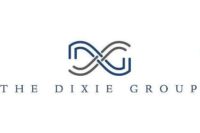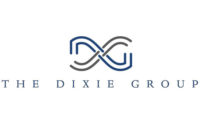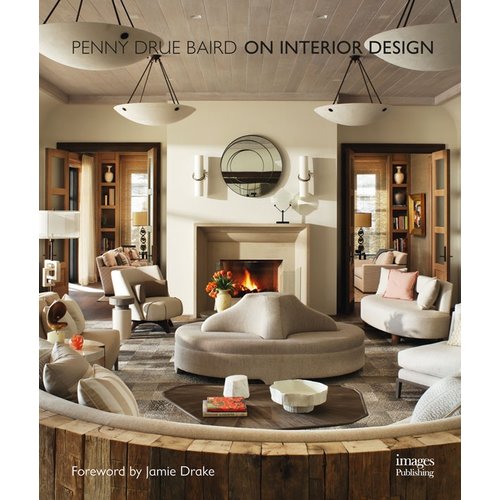Dixie Group Reports 2014 Results

Last year, the Dixie Group had sales of $406,588,000 and income from continuing operations of $673,000, or $0.03 per diluted share, compared to sales of $344,374,000 and income from continuing operations of $5,556,000, or $0.42 per diluted share for 2013. The company had a loss in discontinued operations of $2,075,000 in 2014 as compared to a loss of $266,000 in 2013 for discontinued operations. Net loss for 2014 was $1,402,000 as compared to net income of $5,290,000 in 2013.
“We put together a growth plan to take advantage of the unique opportunities after the downturn of 2008-2009, and that plan has driven our sales success over the last five years. Since 2009, our carpet product sales have grown 96%, while the industry, we estimate, grew only around 12%. While we had planned on 10% growth per year, we became capacity constrained in 2013 as our sales grew over 30%. As a result, we accelerated our plan to grow our capacity from $350 million to a range of $550 to $600 million, depending upon product mix. In addition, we made the decision to merge our two West Coast dye houses as a result of the purchase of Atlas in the first quarter. Further, in the fourth quarter we decided to discontinue the Carousel brand, a small non-core line of products that was part of the 2013 Robertex acquisition. Therefore, 2014 was a year of expansion and facility re-alignment which impacted virtually all of our facilities. We had $3.2 million in facility consolidation and asset impairment expense in the fourth quarter, the peak in terms of investment on re-aligning and expanding our capacity, and thus had the most impact to our bottom line in added operating costs as well.
“The investments we have made have included both capital expenditures and temporary increases in operating costs due to implementation of the capacity expansion plan. We began the year by expanding capacity at Colormaster, our continuous dyeline. We completed the training and fully commissioning of our expanded Roanoke yarn facility. We acquired and began the integration process of Atlas. We expanded our Eton residential tufting operations, doubling the number of machines in service. We realigned our Calhoun wool operations, a change designed to increase capacity and lower cost. Further, we moved the finished goods for our residential East Coast business to our newly opened Adairsville facility, consolidating four warehousing operations into one facility. We added continuous yarn dyeing capability to our Colormaster facility and expanded our yarn skein dye operations in Calhoun, Ga. Similarly, we shut down our Atmore carpet and yarn dye operations, converting that mill to a dry mill dedicated to serving our Masland Contract brand. As part of this process, we de-commissioned our Atmore wastewater treatment plant. Further, on the West Coast, we merged our newly acquired Atlas dye house into our Susan Street dye facility. We upgraded our machine tufted rug capability during the year with added capacity as well as installing skein dye yarn capability to support our custom wool rug programs. We purchased Burtco and its excellence in computerized yarn placement tufting technology, using this as the foundation for our newly formed Masland Hospitality sales force. A prime focus in 2015 is on training our workforce which has increased 45% since the beginning of 2013. Further, in 2015 we are focused on improving waste, yields and efficiencies in our operations. We are seeing the positive impact of our expanded sales force, the result of our efforts in 2013 and 2014 to significantly increase our field coverage.
“Despite the disruption of the past year, we continued to outgrow the industry in 2014 with year-over-year sales growth approximately 7% better than the industry, excluding Atlas. In order to gain more floor space at retail and better position our brands in the marketplace, we have invested significantly in new products for the residential and commercial markets these last several years. Over time, we anticipate our spending for new products will return to a more normal rate or approximately one percentage point less than current selling and administrative expenses as a percentage of sales.
“For the year, gross profit was 23.5% of net sales as compared to 24.8% for the prior year. Gross profit margins were impacted by the massive restructuring we have undergone to re-align operations, expand capacity and integrate the Atlas and Burtco acquisitions. Product mix was within expectations, the lower gross profit was driven by cost variances in our operations as a result of the changes in processes and the addition of new people. Selling and administrative expenses for the year were 22.9% of sales or .8% above the prior year, primarily due to the addition of Atlas as well as higher new product and marketing expenses in our Masland Contract business.
“Facility consolidation expense was $5.5 million for 2014. We anticipate an added $1.4 million of facility consolidation expenses this year. With most of our restructuring complete, the remaining projects are the completion of the Susan Street dye house expansion to accommodate Atlas, the move of our commercial finished goods facility from Saraland, Alabama to our Atmore, Alabama carpet manufacturing facility and the move of our Saraland rug operation out of a rented facility into a company-owned facility.
“Working capital increased $17.6 million for the year, primarily due to higher inventory and receivables. We raised $24.5 million through an equity offering to support the acquisition of Atlas and our continued growth. Capital expenditures and financings for operating equipment was $23.0 million. The purchase of the Adairsville facility in the fourth quarter was $9.8 million. Therefore, total capital expenditures and financings were $32.8 million as compared to depreciation and amortization of $12.9 million. We anticipate capital expenditures for 2015 of approximately $13.5 million and depreciation and amortization of approximately $14.2 million. Our effective income tax rate for the year was 61%. This was primarily due to added state tax valuation allowances of over $500 thousand. Our normal tax rate going forward, at reasonable levels of profitability, should be in the 35% range. Our debt stood at $127.3 million at the end of the year, up $19.3 million for the year. We ended the year with availability under our loan agreements of $40.2 million. We decided to discontinue our Carousel specialty tufting and weaving operations in the fourth quarter. As a result, we had a disposal loss associated with the business and reclassified the operating losses of Carousel into discontinued operations and the resultant quarterly profit and loss statements are shown in the tables attached.
“Carpet sales for the first six weeks of 2015 are up 20% over the same time period in 2014. Excluding Atlas in the year-over-year comparison, carpet sales are up 6.9%. We believe the consumer preference for innovative fashion and better quality products continue to provide us with the opportunity to grow our business and outperform the industry. We see positive signs with the housing market slowly improving, the unemployment rate back down to the levels of 2008 and job creation the strongest in seven years. These factors should lead to continued opportunities in the residential market. Particular opportunities are in the growth of our wool business, further increases in our Stainmaster PetProtect products as well as utilization of our latest investments in both ColorPoint and iTuft tufting technologies for beautiful patterns in the upper-end residential market. We are excited about the growth potential in the commercial market, as evidenced by our purchase of Atlas. We continue to see opportunities for our modular tile offerings in both the Masland Contract and Atlas markets. Further, the future opportunities in hospitality, we believe, can be capitalized upon with the creation of Masland Hospitality and leveraging our investment in Burtco and its unique position in custom computerized yarn placement tufting technology. We want to thank our associates for their dedication during this challenging year and look forward to reaping the benefits of their efforts. As always, we continue to be dedicated to supplying our customers with the finest products of the highest quality,” Frierson concluded.
For more information, visit thedixiegroup.com
Looking for a reprint of this article?
From high-res PDFs to custom plaques, order your copy today!







